
NATURAL COLLAGEN LOSS: TIPS AND TRICKS TO SLOW DOWN THE DECLINE.
Beginning in our twenties, our bodies start to lose approximately 1% of collagen each year, a trend that intensifies during menopause when women may experience up to a 30% reduction in collagen over the first five years [3, 12]. This decline in collagen, a crucial protein for skin elasticity and joint health, significantly contributes to the visible ageing of our skin and decreased mobility in our joints.
Recognising this, we have compiled a list of the most significant factors that influence collagen loss, providing insights into how we can effectively slow this process and support the maintenance of healthier skin and more flexible joints as we age.

GLYCATION
As we age, our connective tissue (such as skin, tendons, and ligaments) undergoes 'glycation'—a process where sugars in our bloodstream bind to proteins, creating inflammatory compounds known as Advanced Glycation End Products (AGEs). It can damage the tissue, impacting skin health and joint flexibility. To combat this, maintaining healthy blood sugar levels through a balanced diet rich in fibre and low in refined sugars is crucial [1,7]. Recent studies have also highlighted the potential of collagen peptide supplements in reducing AGE formation, offering further support for skin and joint health [6].
For more detailed strategies on inhibiting glycation reactions and preserving youthful tissue, explore our in-depth article UNDERSTANDING GLYCATION: A CULPRIT IN AGEING TISSUE.
SLEEP DEPRIVATION
Quality sleep is essential for tissue repair, including collagen maintenance. Sleep deprivation can disrupt the immune system, potentially weakening collagen fibres. This highlights the importance of adequate sleep in preserving collagen integrity in our skin and connective tissue [2].

NOT ENOUGH PROTEINS AND OTHER DIETARY CONSIDERATIONS
Studies have found that adults who consume inadequate amounts of protein tend to have impairments in skin collagen content, diminished hair follicle quality, and experience more hair loss, in comparison to those who consume sufficient dietary protein. As collagen peptides are pure protein, they can positively affect collagen production. In a 12-week study, participants who drank a beverage enriched with collagen peptides exhibited significantly higher production rates of procollagen, the collagen precursor, compared to those in the placebo group [4].
Furthermore, adopting an anti-inflammatory diet is crucial in preventing collagen degradation. This diet should include a rich array of antioxidants and essential fatty acids (EFAs), vital in neutralising free radicals, known for their role in damaging healthy cells and breaking down collagen. Foods rich in EFAs, such as oily fish, walnuts, and avocados, are particularly beneficial for collagen health [13].
In addition, it's essential to be mindful of other lifestyle choices that can impact collagen maintenance, such as alcohol consumption and smoking. These habits can accelerate collagen degradation, potentially compromising your skin's and connective tissue's health and elasticity.
INAPPROPRIATE TRAINING TECHNIQUES: GOING TOO HARD ON YOUR JOINTS
Proper training techniques are crucial for collagen health, particularly in aiding the remodelling of collagen fibres in tissue. Embracing dynamic and gentle movements, as well as multidirectional exercises, supports the overall health of connective tissue. The 'ninja effect', inspired by traditional Japanese warriors' fluid and controlled movements, emphasises the importance of soft execution in exercises, especially in bouncy activities like running, hopping, and dancing. This approach is beneficial for the optimal arrangement and remodelling of collagen fibres in tissue. Conversely, overly vigorous or improper techniques can strain and damage these fibres [10].
We cover the collagen remodelling process and its promoting habits in detail in our articles THE CRUCIAL ROLE OF FASCIA FOR YOUR FLEXIBILITY (PART 1) and PART 2.

THE SKIN-GUT AXIS: MICROBIOTA IMBALANCE
The skin-gut axis underscores the crucial link between diet, gastrointestinal health, and skin condition. Imbalances in gut microbiota can trigger immune responses that lead to skin inflammation and the release of collagen-degrading enzymes. Factors like a diet high in processed foods, sugars, and certain dairy products, as well as chronic stress, specific medications, and environmental toxins, can disrupt gut health and, consequently, skin collagen integrity. Protecting and nurturing your gut is key to safeguarding skin collagen—remember, a healthy gut is your skin's best ally against collagen degradation [8].
The best way to promote a healthy gut microbiota is through a well-balanced diet rich in fruits and vegetables and the incorporation of fermented foods. There are several types of fermented products, including dairy options, legume- and cereal-based fermented foods like soy sauce, miso, doenjang, tempeh, and natto. However, modern soy products are often not fermented and contain other potentially harmful substances due to being highly processed. Some of these may include tofu, soy burger patties and soy milk. Choose minimally processed fermented options [5].
If you are considering taking a probiotic supplement, it's wise to consult with medical and nutritional experts to identify the most suitable blend for your individual needs.

ULTRAVIOLET (UV) RADIATION
UV radiation is a key factor in oxidative stress, resulting in damaged skin cells and inflammation. This process activates macrophages, which then release enzymes that break down collagen. Repeated exposure to UV radiation exacerbates this damage, leading to lasting harm to the dermis. To mitigate these effects, it's crucial to adopt protective measures. Regular use of broad-spectrum sunscreen, wearing protective clothing, and seeking shade during peak sunlight hours can significantly reduce UV exposure. Additionally, incorporating antioxidants in your skincare routine and diet can further defend against UV-induced damage, supporting your skin's collagen integrity and overall health [13].
BOTTOM LINE
Understanding factors such as glycation, the significance of quality sleep, and the role of antioxidants and protein in our diet is key to combating collagen loss and decelerating the ageing process of both skin and joints. These insights are instrumental in your flexi-journey, leading to improved joint health and overall well-being. They empower you to make choices that nurture youthful skin and contribute to a more vibrant, healthy life.



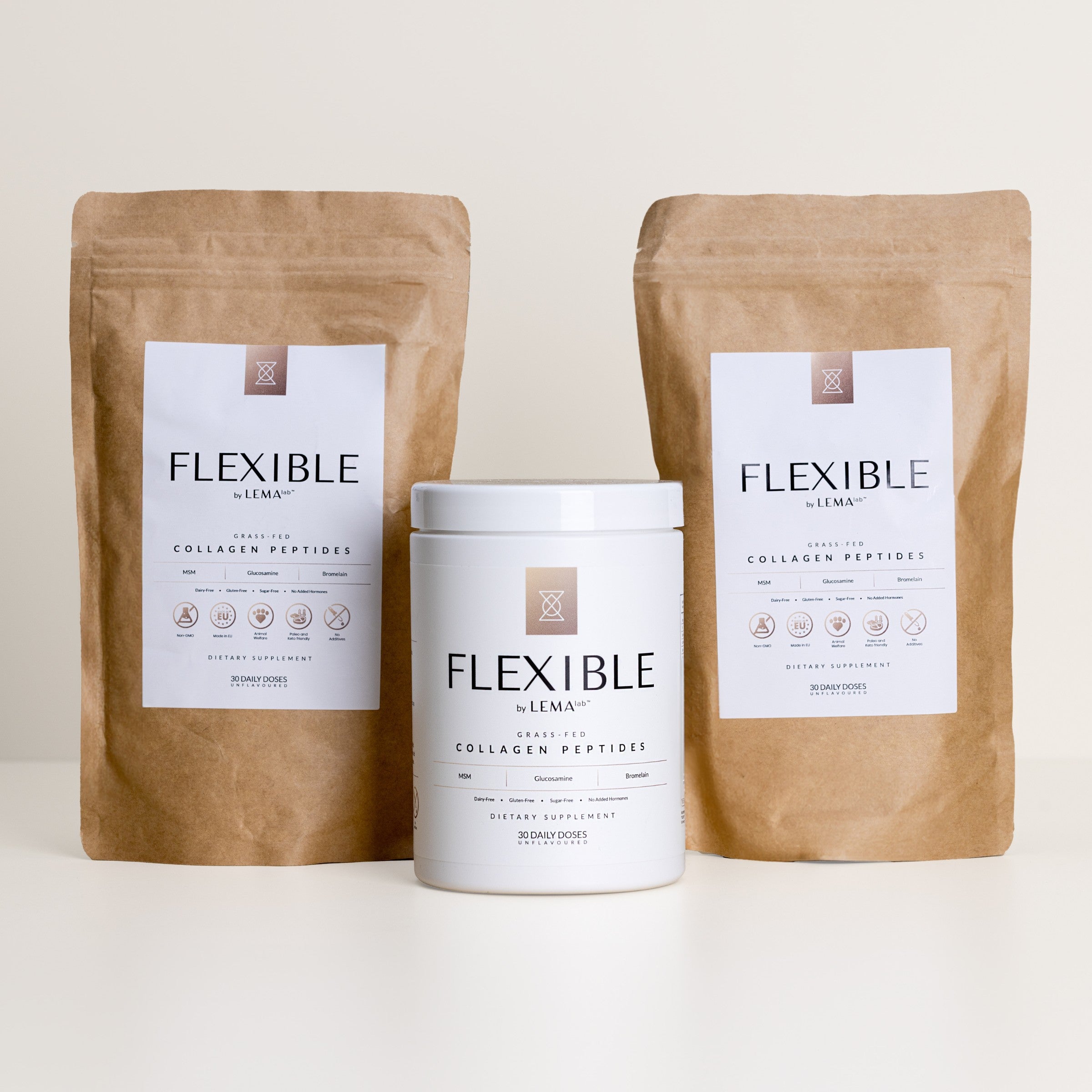
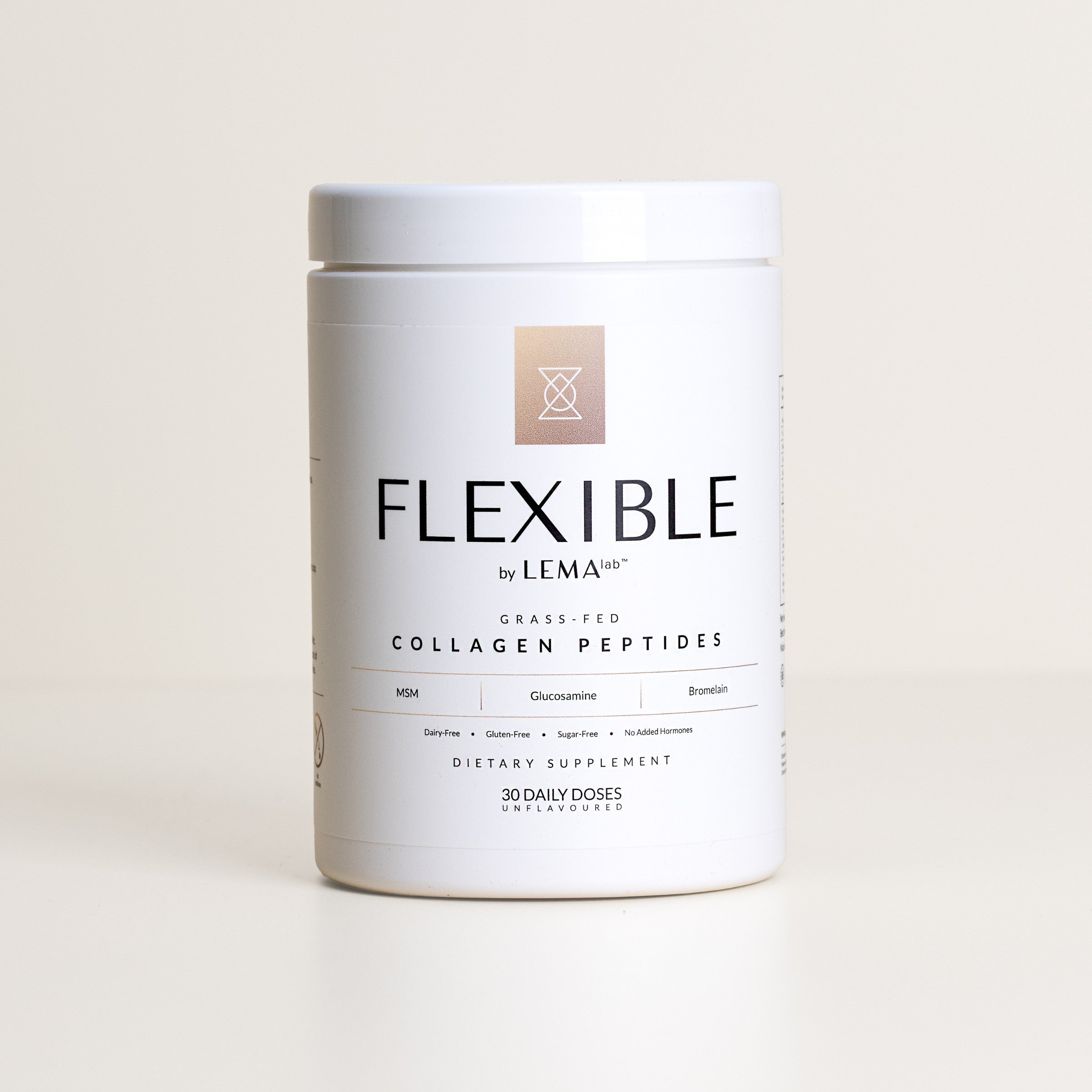
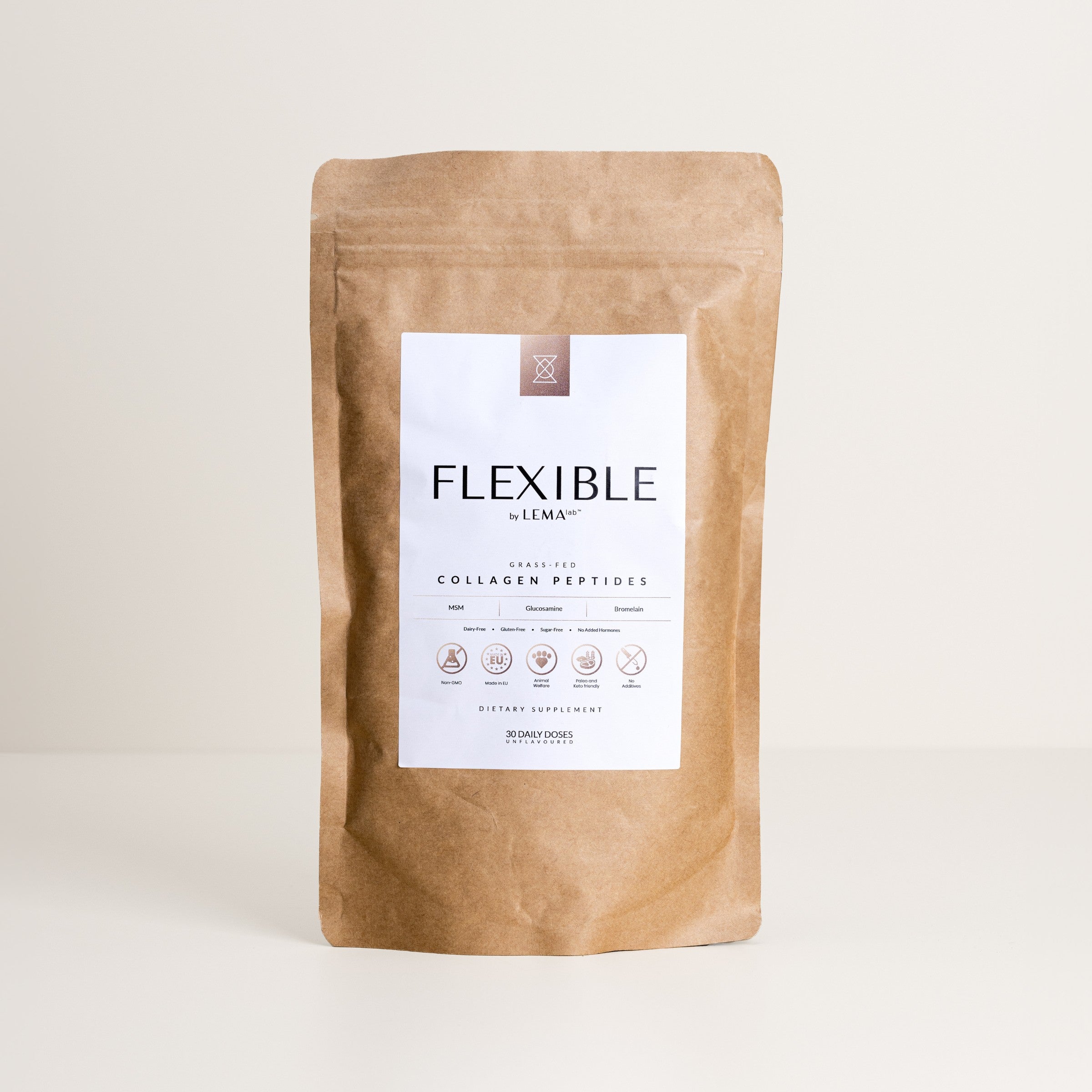
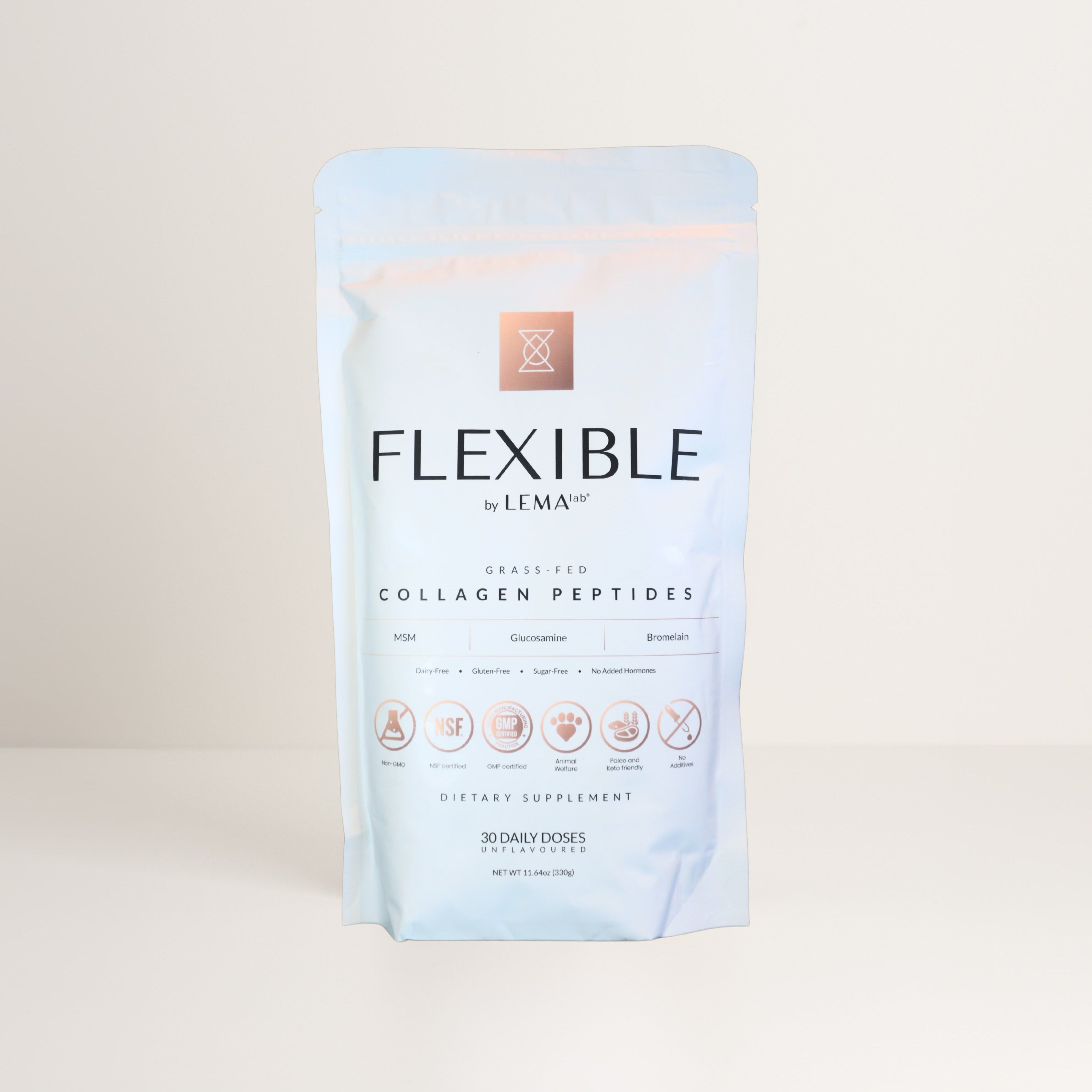
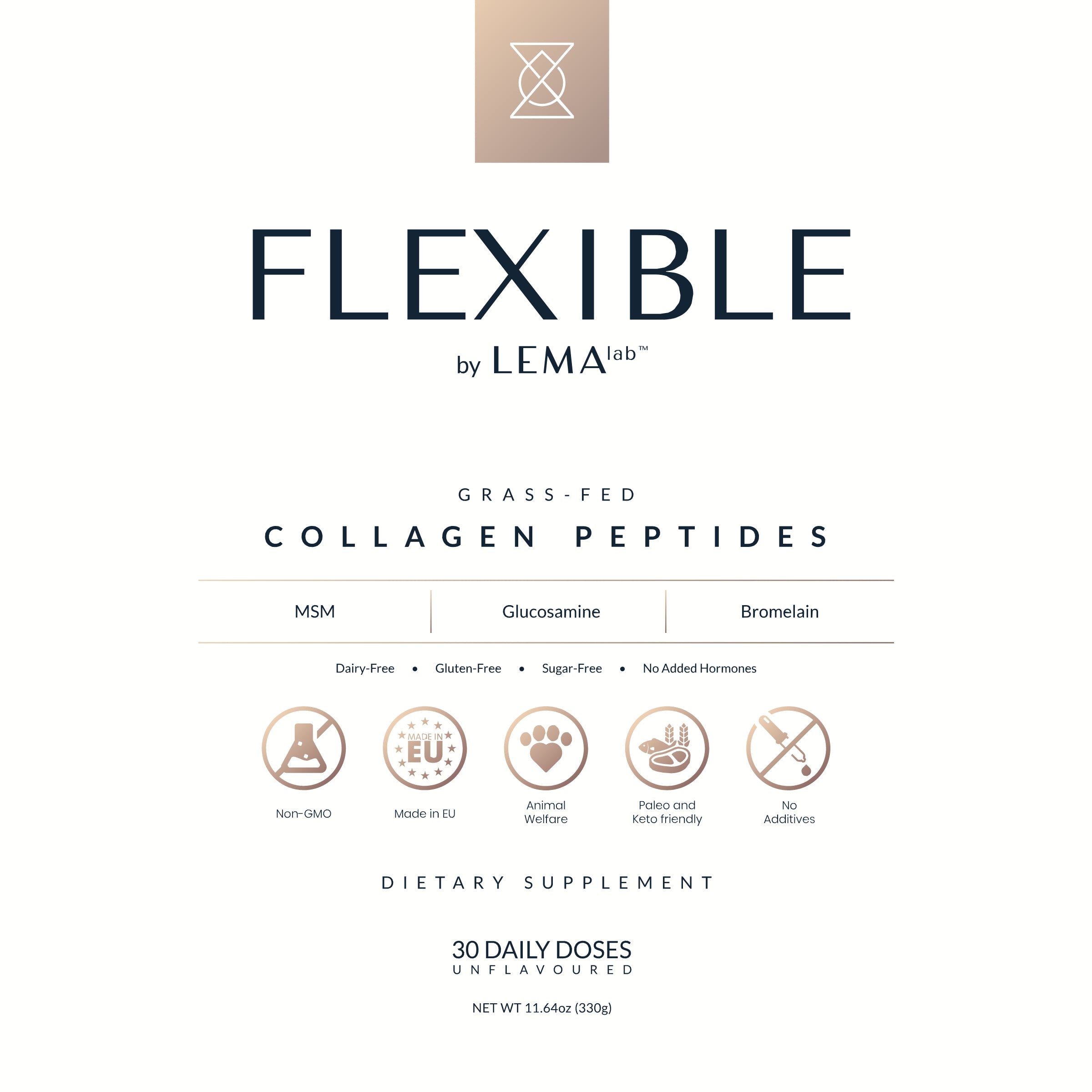
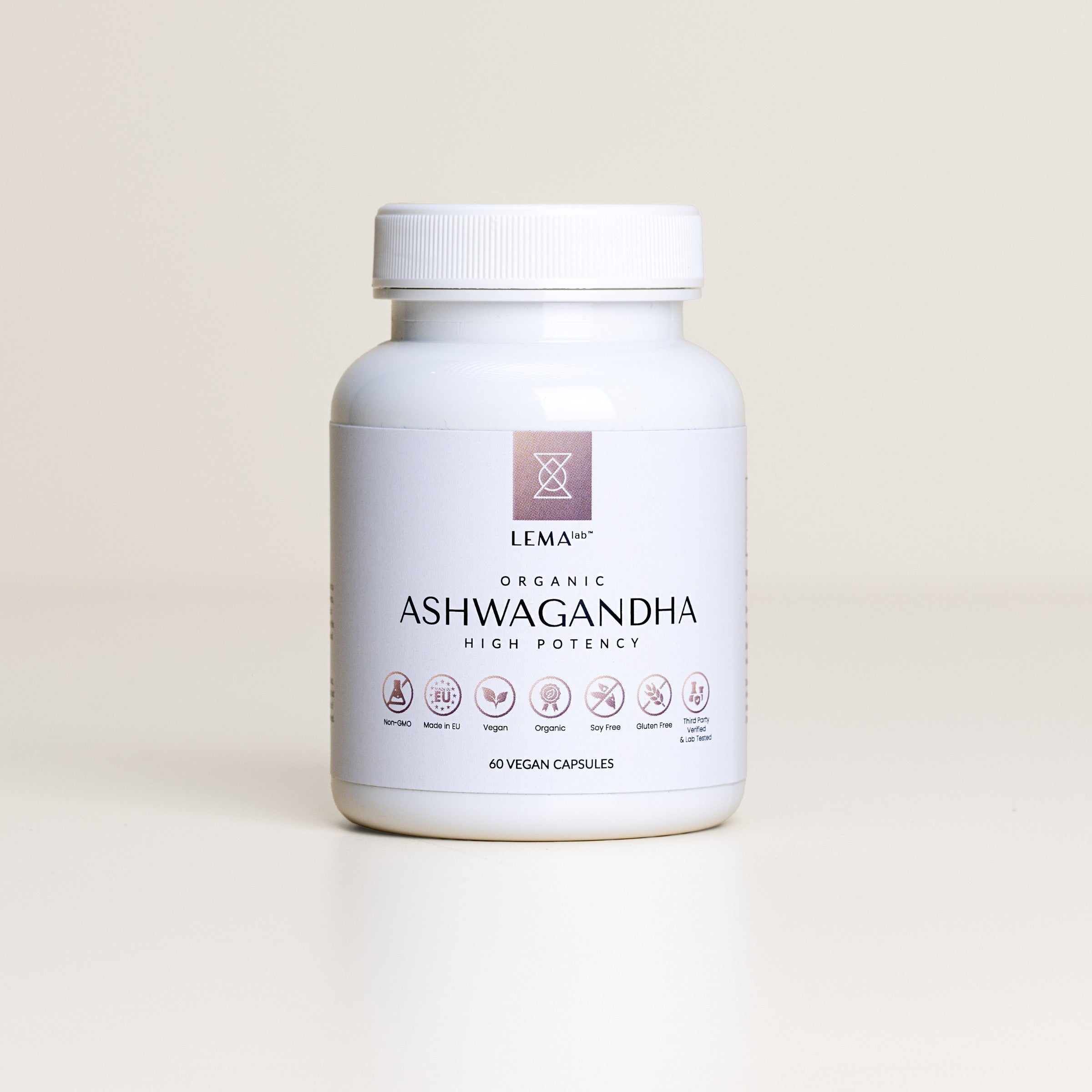
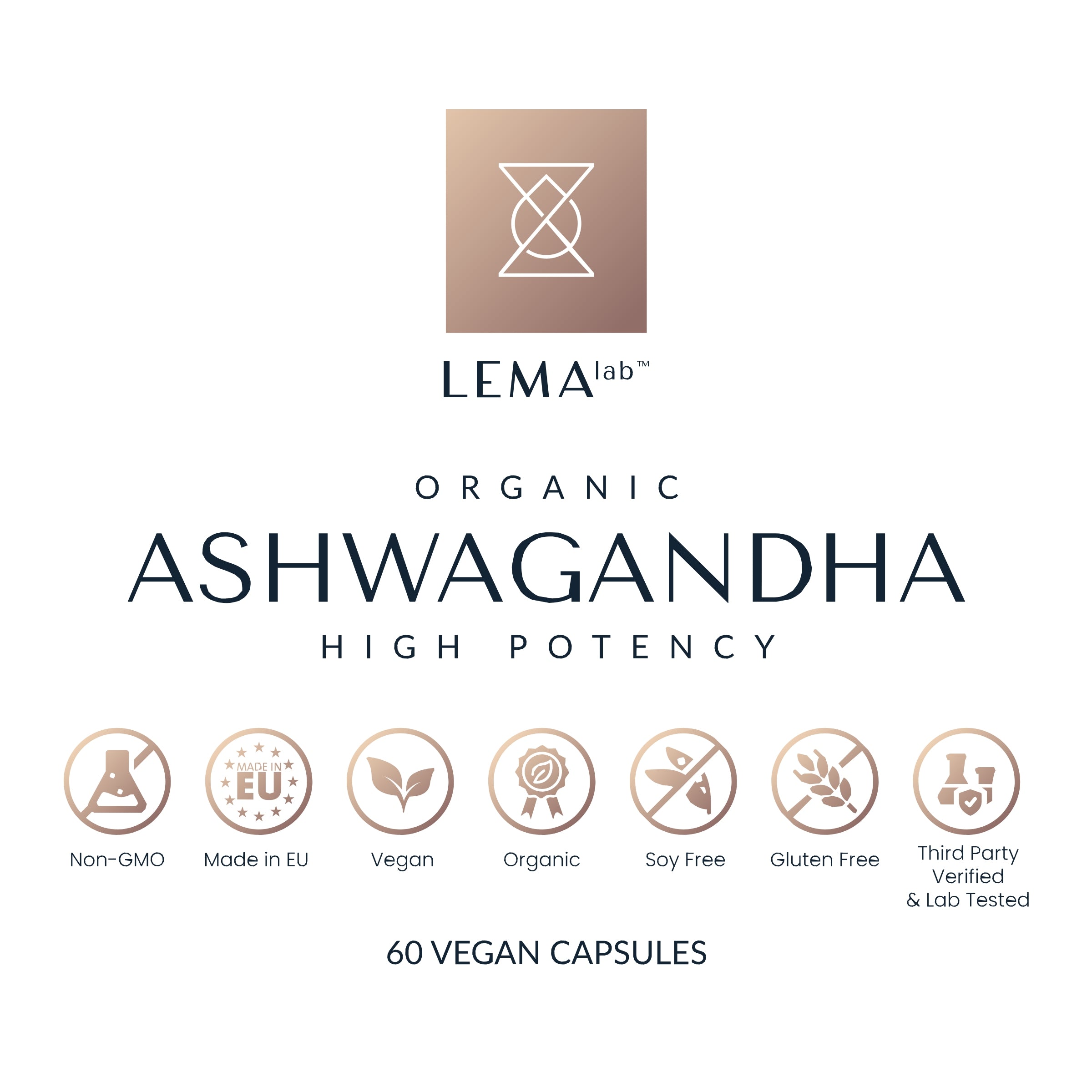
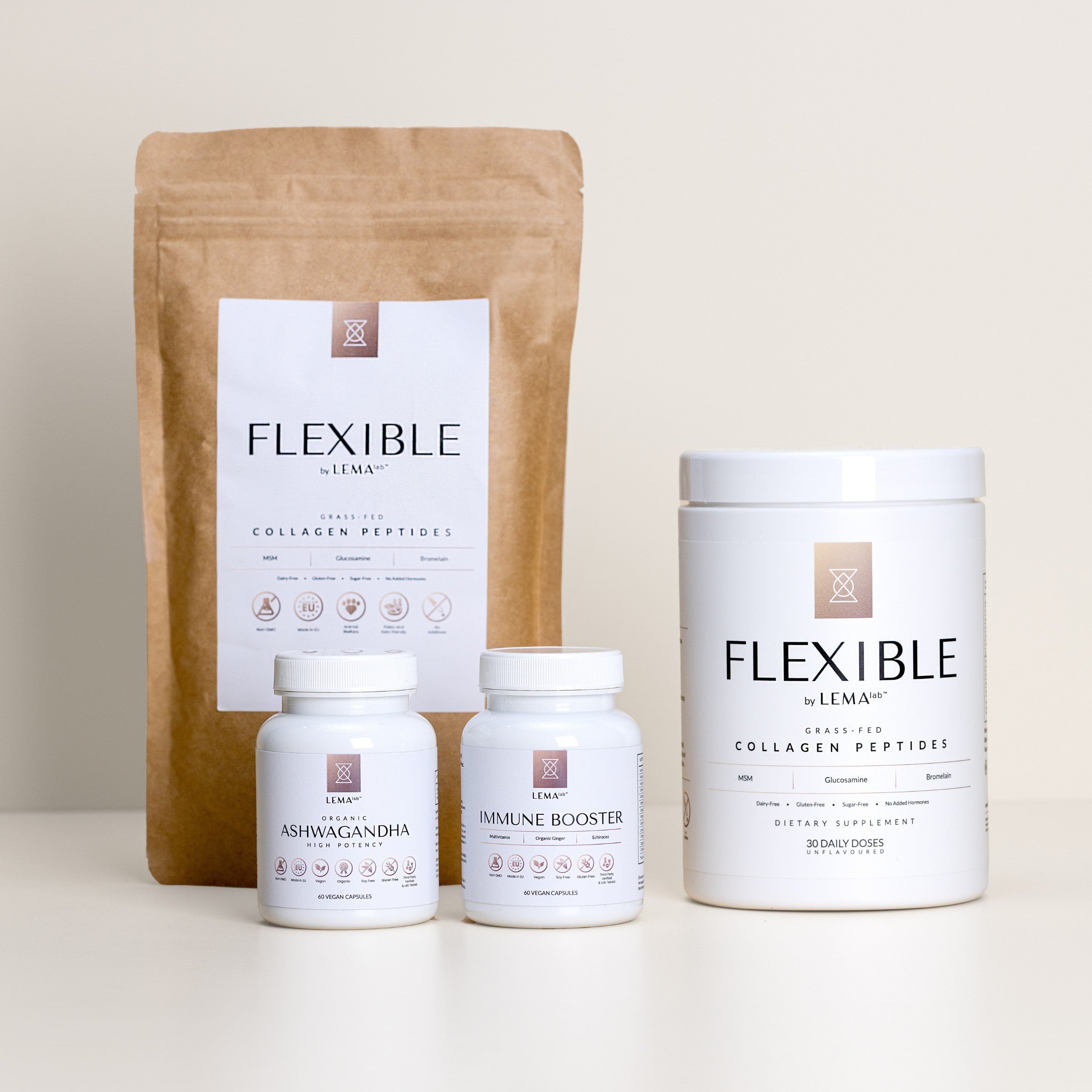

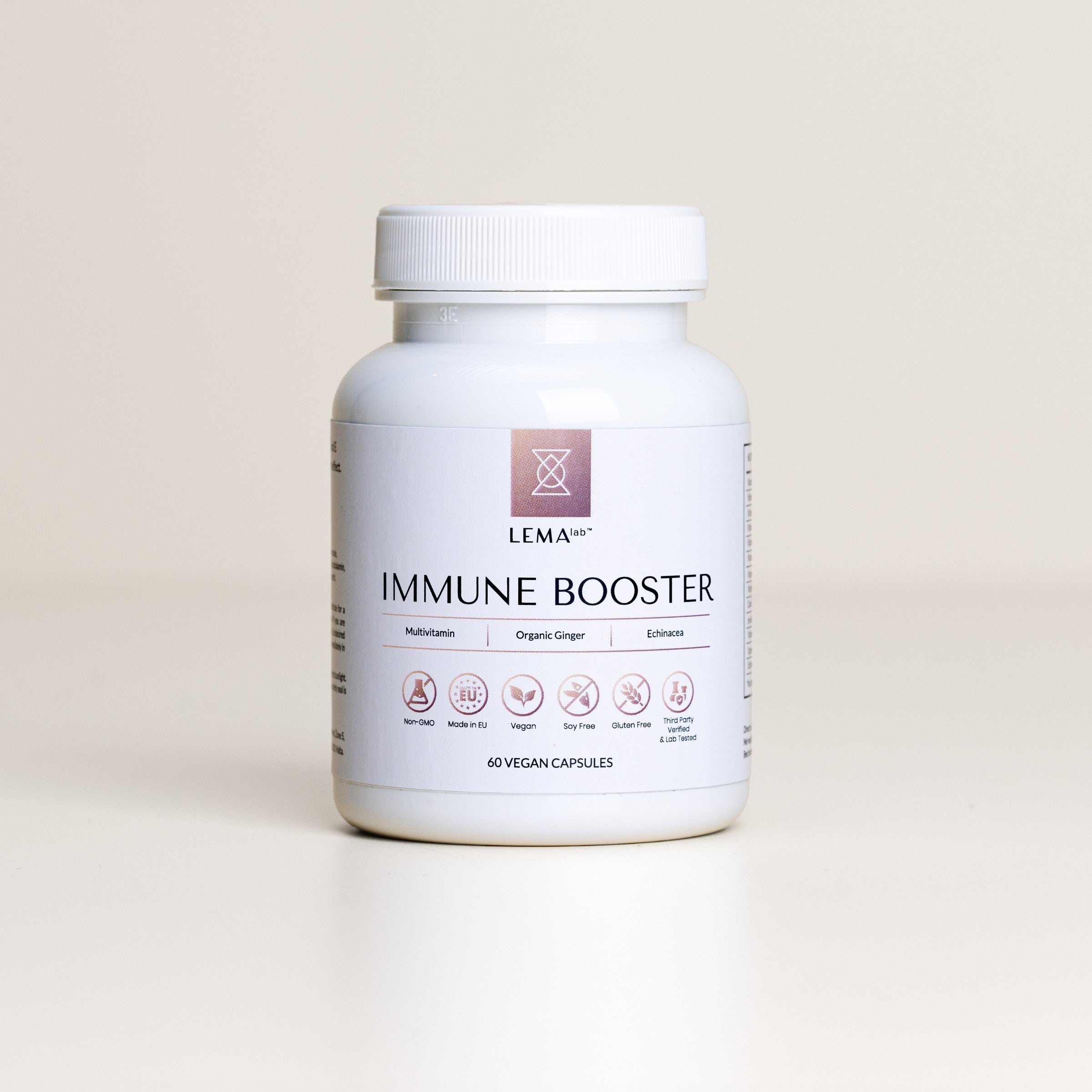
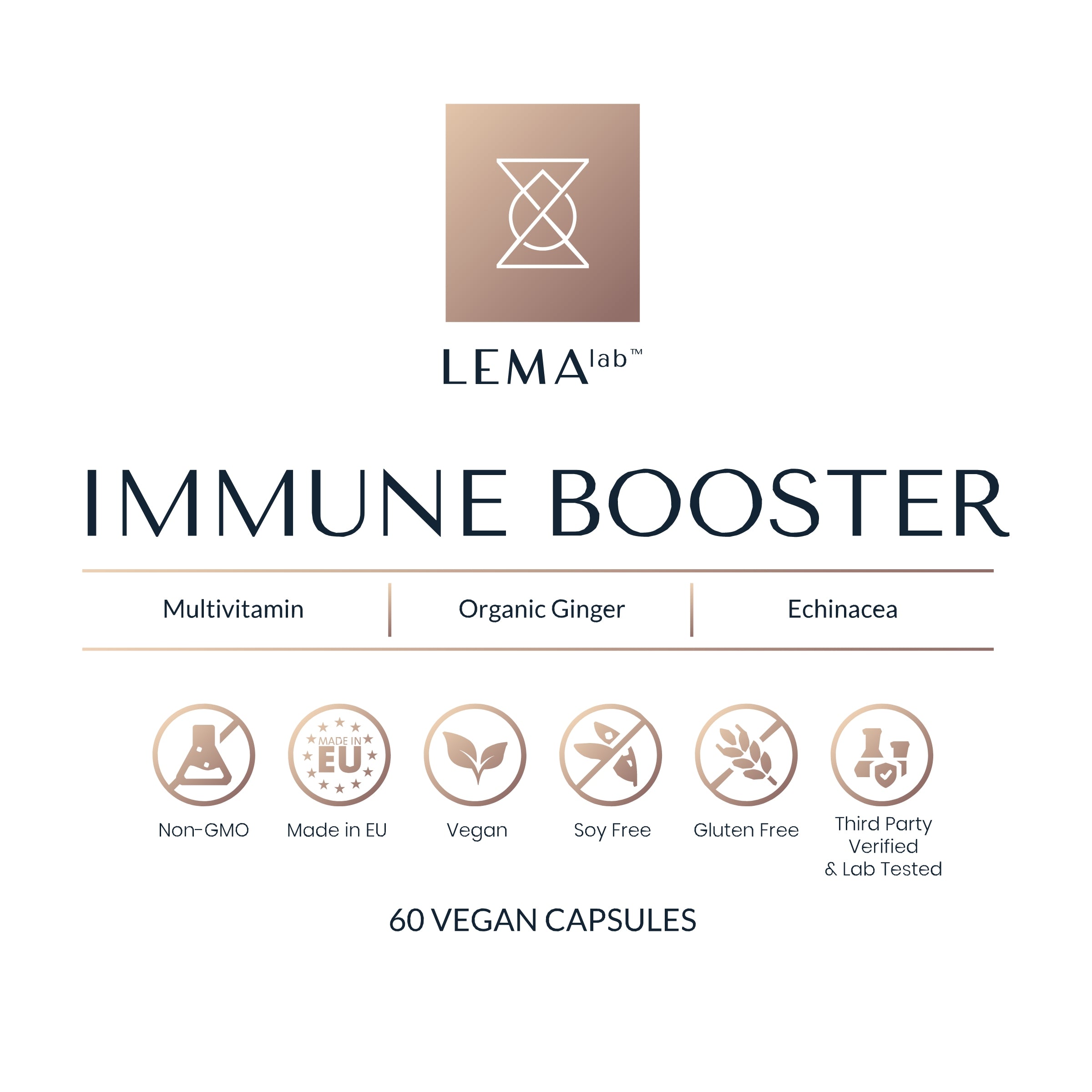
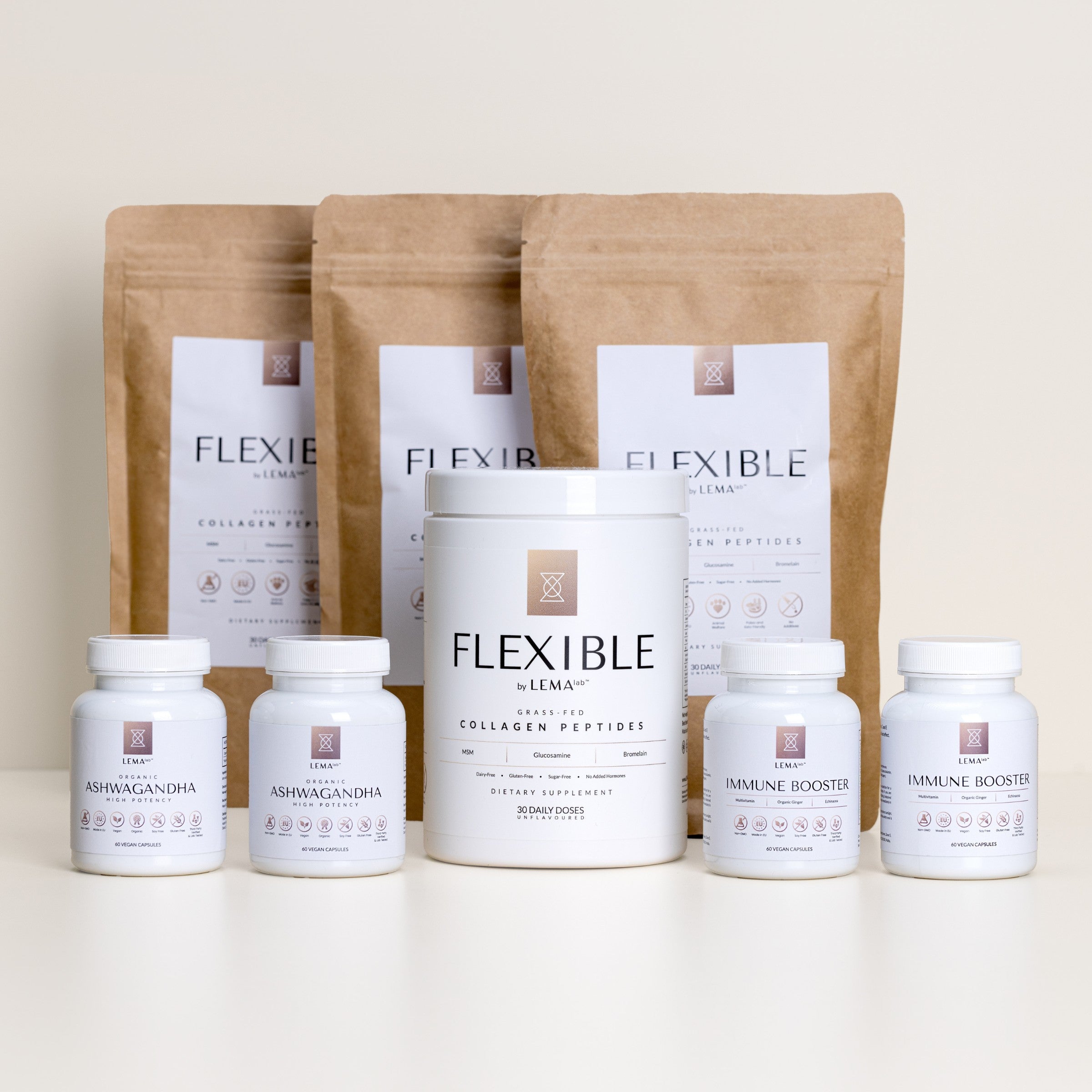
Leave a comment
This site is protected by hCaptcha and the hCaptcha Privacy Policy and Terms of Service apply.